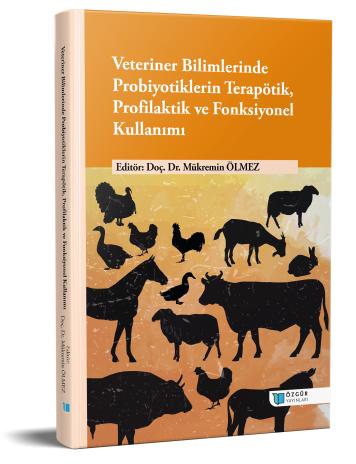
Probiotics
Chapter from the book:
Ölmez,
M.
(ed.)
2023.
Therapeutic, Prophylactic, and Functional Use of Probiotics in Veterinary Sciences.
Synopsis
The term “Probiotics” refers to living microorganisms which, when provided in sufficient quantities, have a positive impact on the health of the host organism. The word "probiotic" was first used by Ferdinand Vergin in 1954 to denote the beneficial effects of certain bacteria on the gut microbiota. The use of probiotics may be dated back to the prehistoric era. However, the discovery of the beneficial effects of certain bacteria is attributed to Eli Metchnikoff, a Russian-born Nobel Prize winner who conducted the study at the Pasteur Institute during the early 20th century. The emergence and dissemination of antimicrobial-resistant bacteria have generated apprehension regarding the use of antibiotic growth promoters in animal feed. Consequently, there has been an increasing focus on exploring alternatives to enhance animal production, health, and welfare. Notably, probiotics have demonstrated noteworthy results across various livestock species. Therefore, the worldwide probiotic industry has seen substantial growth as a result of the rising demand for animal food products. Given the efficacy of probiotics, ensuring their safety for long-term use is of significant importance that needs to be addressed.

